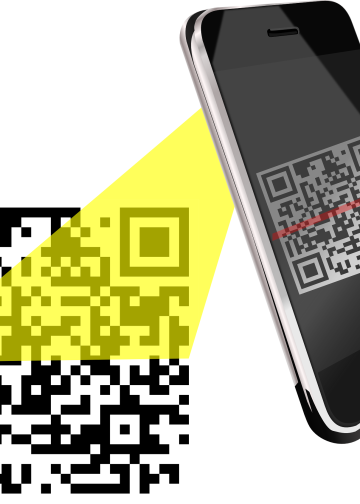Technology has paved the way for healthcare over the past few decades. New technologies and innovations have made detecting, curing, and preventing illnesses easier. Specifically, AI-driven practices have digitized healthcare workflows, helped manage global health threats better, and met the demands for quality medical service.
From legacy software that modernizes the current hospital and care center network to enterprise imaging that allows visualizing and sharing the complete picture of a disease, the healthcare industry has witnessed a 180-degree shift. As time goes on, the healthcare industry continues to leverage AI and technology to boost its services. Yet, it's unpredictable as to what is coming next. This article explores nine innovations and technologies in healthcare.
-
AI for diagnosis and drug development
Artificial intelligence (AI) has proven successful in treating and responding to healthcare emergencies posed by the COVID-19 pandemic. AI helps improve information processing and medical decision-making. On the other hand, machine learning has improved drug development and enhanced the diagnosis of medical illnesses. Leveraging AI for medical diagnosis has helped analyze CT scans to identify pneumonic cases during the pandemic. Similarly, radiotherapy has also taken advantage of AI technology. Microsoft launched its Project InnerEeye, a radiotherapy tool that renders machine learning to enhance the contouring of 3D medical images. Project InnerEye aims to employ life science organizations, researchers, and hospitals to provide better medical imaging.
-
Code Scanning Technology
The healthcare industry has decreased medication errors through code scanners used by medical professionals like nurses. According to the U.S. Department of Health and Human Services, more than 770,000 deaths and injuries occur yearly due to medication errors or Adverse Drug Events (ADEs) in hospitals and medical centers. Code scanners help nurses and doctors assign patients medication, leverage transfusions, and scan blood and saline bags. Healthcare customers in more than a hundred countries use Code's scanners to relay medical services like dispensing medication, prescribing treatment, and staying on top of patient needs and demands.
-
AI in mental health
AI is not just applicable to physical health. Research efforts by Harvard and MIT have rendered machine learning to understand the trends and correlation between mental health and the COVID-19 pandemic. Through AI-driven models, it is easier to analyze threatening messages regarding suicidal ideation on social media platforms and create better policies regarding mental health. AI also helps detect symptoms of mental illnesses like dementia and Alzheimer's by noticing the brain's chemical activities regarding memory, communication, and reasoning. Deep learning and AI have also enhanced audio processing and helped analyze human speech to identify early symptoms of dementia.
-
mRNA Technology
The new COVID-19 vaccines utilized mRNA technology. Due to its effectiveness, ability to develop rapidly, and low production expense, mRNA vaccines are a great alternative to conventional vaccines. mRNA technology is based on genetic engineering as it contains the RNA molecule responsible for carrying genetic information. mRNA vaccines introduce a genetic code to the cells and help them produce healthy proteins necessary for a strong immune response. From Zika virus to COVID-10, mRNA vaccines have been fruitful medical interventions. By rendering mRNA technology, the healthcare industry can reduce development costs and times and enhance the quality of vaccines and protein-based drugs.
-
Neurotechnology
Neurotechnology, though new, is already being applied to various medical and healthcare procedures. Although it holds implications for areas other than healthcare like workplace management, sports, education, and national security, the focus is now on medical intervention. Neurotechnology has allowed the healthcare industry to understand the brain's activity and neuroplasticity better. Neurotechnology is currently applied in brain image scanning, neurostimulation, recording magnetic and electrical activity within the brain, and producing neuro-devices like implants. Although neuro-devices are in their research phase, they have significant future implications for treating brain disorders. Despite its usefulness, neurotechnology received backlash due to its controversial aspect regarding data and privacy. Nonetheless, it could change the identification and treatment of neurological disorders and enhance the medical field in later years.
-
AI in cancer diagnostics
For years, conducting a biopsy was the only way to detect cancer diseases and extract tissues from the human body for analysis. However, despite being useful, biopsies don't give a clear picture of the organ tissue. It led to the modernization of histopathology and reliance on digital scans of cancer sites. While these scans are informative, the huge image resolution makes analysis and inspection time-consuming. AI applications provide a solution to these problems and facilitate cancer diagnostics. With the help of neural networks and computer vision, healthcare experts can locate cancer sites in less time. Another advantage to using AI is that it requires little training.
-
Precision Medicine
The advancement of medical technology has increased its accessibility to patients. Through the technology rendered by precision medicine, it is easier for medical experts to take note of a patient's genetics, lifestyle, and environmental factors. For instance, precision medicine allows cancer patients to be treated with medications based on their genetic make-up. Precision medicine is, therefore, more effective in attacking tumor or cancer sites. Currently, oncology uses precision medicine technology, though it has broader implications to benefit other fields like treating rare and inheritable diseases.
-
Telemedicine
Telemedicine has been on the rise since the emergence of the COVID-19 pandemic. Telemedicine is about offering remote clinical services, whereas telehealth offers non-clinical services. Since most workplaces and individuals have adopted the work-from-home lifestyle, telehealth and telemedicine have grown in demand thanks to the pandemic. Telemedicine benefits healthcare experts and patients as it offers the comfort of seeking medical care from your home, reducing travel expenses. Telemedicine is also convenient for the elderly or those living in remote or isolated locations. For the healthcare industry, telemedicine reduces the need for constructing more clinics and bearing other overhead expenses. Telemedicine also reduces exposure to infections and illnesses, allowing healthcare providers to observe patients without a threat.
-
Extended reality
Extended reality is an umbrella term that includes mixed, virtual, and augmented reality. Previously restricted to the tech fields, extended reality has tremendous implications for the healthcare industry. It is used to assist surgeons like the mixed reality headsets relay information to the surgeon. At the same time, they remain busy carrying out the procedure with their hands. Other interventions like head-mounted cameras are also valuable for assisting surgical procedures.
Conclusion
Healthcare technology continues to grow and improve as more technological advancements erupt. While data, privacy, security, and ethics are still a concern across the healthcare industry, the overall benefit of rendering technology for treating illnesses outweighs its cost. Through technology, the quality of care and efficiency of treatment has improved. While time and funding are decisive factors in using technology for healthcare, it is hard to ignore its benefits.
























